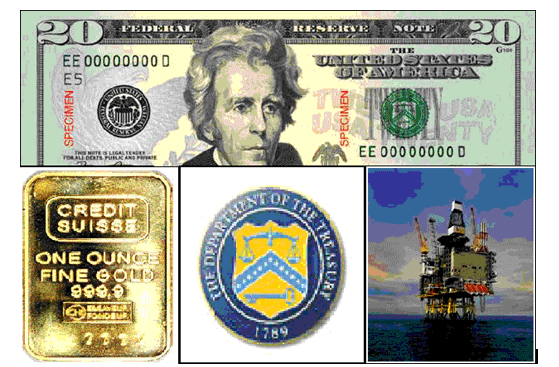US foes keen to end reign of petrodollar face a long wait
| http://archive.gulfnews.com/articles/08/05/09/10211752.html |

London: Oil’s surge to record highs has coincided with the dollar’s fall to record lows against the single European currency – but US foes keen to end the reign of the petrodollar still face a long wait.
The rise in crude prices has been spurred in part by the dollar’s weakness relative to major currencies, such as the euro.
The correlation, or the strength of the relationship between oil prices and the euro/dollar, has been close to 90 per cent until the end of last week, according to Reuters data, although this has begun to fade.
Analysts warn such ties are notoriously fickle as different markets are for most of the time driven by different fundamentals, but some think the trend could endure. “I think this correlation could last for awhile,” said Hilary Till, principal of US-based Premia Capital Management. “This is consistent with the well-telegraphed intentions of oil exporters to diversify their currency holdings.”
Turning points in the euro and oil have frequently coincided, Till noted. When oil hit an interim record of $119.90 on April 22, the euro hit a record high against the dollar, but when the most recent record of nearly $124 was struck this week, the dollar was recovering.
Regime change
Investment bank Goldman Sachs said the relationship was unlikely to remain as strong as it has been in recent months, but also said it was rooted in a trend for oil exporting countries to shift investments away from the dollar. “This change in regime has fundamental underpinnings, including changing flows from oil-exporting countries,” the bank wrote in a research note.
Monitoring how oil exporting countries invest petrodollars – or the payments they receive in dollars – is extremely difficult.
“Anecdotally, we suspect there has indeed been a move to reduce the exposure to US dollar assets and increase that to euro assets,” said Stephen Jen of Morgan Stanley. He added the proc-ess had taken place over the last two-to-three years.
While Iran and Venezuela have campaigned against the dollar, for other oil producers, the diversification is more pragmatic than political and they have been looking to the Japanese yen and other Asian currencies, as well as the euro.
But the big oil producers have an interest in a strong dollar as they already have huge amounts invested in the dollar, which is so well-established as the currency of oil trade, it is easiest to respect the status quo.
Categories
Archives



